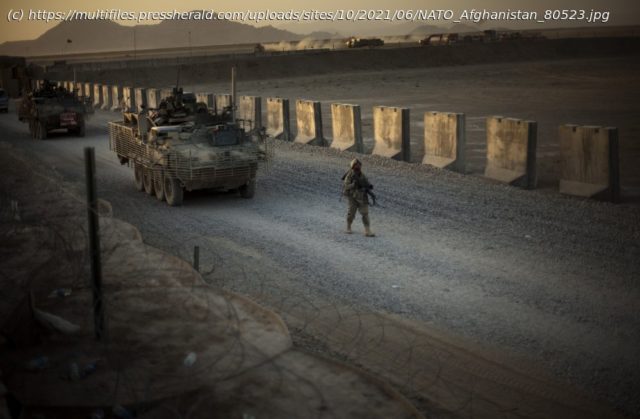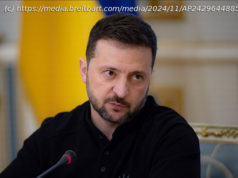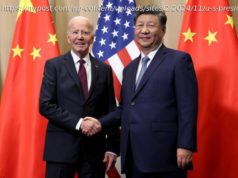The meeting is bound to renew questions about whether NATO’s most ambitious operation ever was worth it.
BRUSSELS — U.S. President Biden and his NATO counterparts will bid a symbolic farewell to Afghanistan on Monday in their last summit before America winds up its longest “forever war” and the U.S. military pulls out for good. The meeting is bound to renew questions about whether NATO’s most ambitious operation ever was worth it. The 18-year effort cost the United States alone $2.26 trillion, and the price in lives includes 2,442 American troops and 1,144 personnel among U.S. allies, according to figures from Brown University. NATO does not keep a record of those who die in its operations. Those casualty figures dwarf Afghan losses, which include more than 47,000 civilians, up to 69,000 members of the national armed forces and police, and over 51,000 opposition fighters. The military effort followed the 2001 arrival of a U.S.-led coalition that ousted the Taliban for harboring al-Qaeda leader Osama bin Laden. Few experts argue that it brought long-term stability, meaningful democracy or security. “At this point, you get the impression that NATO leaders almost want to downplay and leave quietly, rather than making too big a deal of it, and going on to focus on other business,” said Erik Brattberg, director of the Europe Program at the Carnegie Endowment for International Peace. With the U.S. leading the withdrawal, European allies and Canada want to hear Biden’s thinking about how security will be assured at their embassies, along major transport routes and above all at Kabul’s airport. Many wonder whether the Afghan government can survive a resurgent Taliban. Some think Kabul’s capitulation is only a matter of time. “We are currently in intense discussions with our member states, the United States, NATO and the United Nations on the absence of essential security conditions for our continued diplomatic presence. It will be difficult to keep it” in place, European Union foreign policy chief Josep Borrell said. For now, NATO plans to leave civilian advisers to help build up government institutions.






